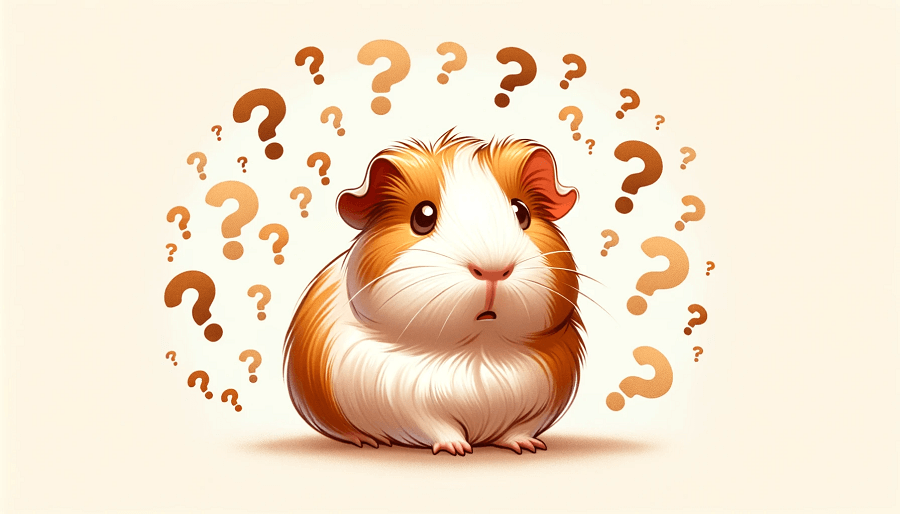On average, a healthy guinea pig pees around 10-20 times per day. That’s right, you might witness a little puddle every 15-30 minutes! Remember, their bladders are much smaller than ours, so frequent trips to the “porcelain palace” are essential. But this number can fluctuate depending on several factors, like:
- Age: Young guinea pigs have even smaller bladders, so expect more frequent peeing until they’re around 6 months old. Seniors may pee less due to decreased activity and kidney function.
- Diet: High-water foods like fruits and vegetables will naturally increase pee volume. Vitamin C intake also plays a role, affecting both volume and acidity.
- Water intake: Fresh, clean water is crucial for bladder health and pee dilution. So, if your guinea pig is a big-time drinker, expect more puddles.
- Activity level: The more they move, the more they drink and ultimately, the more they pee.
- Health conditions: UTIs, bladder stones, and other health issues can affect both the frequency and characteristics of your guinea pig’s pee.
Remember, these are just averages. Every guinea pig is an individual, and their pee habits may vary slightly. But what about abnormal patterns? When should you be concerned?
Related Article: Guinea Pig Care Guide: Must-Knows for New Owners
Red Flags to Watch For
- Straining while trying to pee: This could indicate a blockage or bladder stones.
- Blood in the pee: A definite sign of a potential health issue.
- Frequent urination at night: This can be a sign of diabetes or other underlying problems.
- Unusual odor or cloudy pee: Could indicate dehydration, bladder sludge, or infection.
If you notice any of these red flags, consult a veterinarian immediately. Early diagnosis and treatment are crucial for keeping your guinea pig healthy and happy.
Managing Pee Concerns: Keeping Your Cage Clean
Guinea pigs deserve clean and comfortable living spaces. Their frequent peeing can make maintaining a fresh cage a challenge. Fortunately, there are several strategies you can employ to keep things under control:
Bedding Choices
Absorbency is key: Look for absorbent bedding materials like wood pellets, paper bedding, or fleece liners. Avoid dust-prone options like hay, which can irritate respiratory systems and worsen pee odors.
- Change it regularly: Depending on the type of bedding, you might need to change it daily or every few days. Discard soiled areas promptly to prevent bacteria growth and unpleasant smells.
- Spot cleaning is your friend: Regularly remove wet patches and droppings throughout the day to keep the bedding fresher for longer.
Litter Box Training
- Yes, it’s possible! While not all guinea pigs take to litter boxes, some readily pick it up. Experiment with different tray types, placements, and absorbent litter materials. Try pellets or shredded paper.
- Patience and positive reinforcement: Reward your guinea pig for using the litter box with treats or praise. Remember, accidents happen, so be patient and consistent with your training efforts.
Diet and Hydration
- Fresh and clean water is essential: Ensure your guinea pig always has access to clean, uncontaminated water. Regularly refresh their water bottle (daily or more often in hot weather) and replace any stagnant water.
- Balance their diet: Provide a mix of hay, veggies, pellets, and occasional treats. High-water vegetables like lettuce and cucumber can increase pee volume. Calcium-rich foods like kale and broccoli can help prevent bladder stones.
Stress-Free Environment
- Spacious accommodations: A cramped cage can cause stress and lead to more frequent urination. Ensure your guinea pig has enough space to move around freely.
- Multiple hideouts: Provide cozy hideouts where your guinea pig can feel safe and secure. Feeling stressed can make them pee more, so offering comfortable retreats is key.
- Regular playtime and cuddles: Guinea pigs are social creatures who thrive on interaction. Spend time each day playing with your pet and offering affection. This can help alleviate stress and contribute to their overall well-being.
Remember, communication is key. Observe your guinea pig’s behavior, track any changes in their pee habits, and consult a veterinarian if you have any concerns. With your attention, care, and the right strategies, you can manage your guinea pig’s pee like a pro!
Guinea Pig Pee FAQs
There’s no significant difference in urination frequency between genders. Both males and females pee around 10-20 times daily.
A mild odor is normal, but a strong, ammonia-like smell can indicate a urinary tract infection or bladder stones. Consult a vet if you notice a significant change in odor.
Generally, no. Guinea pigs groom themselves well, and their pee is relatively dilute. Unless they have health concerns causing urine buildup, cleaning is unnecessary.
First, rule out any health issues by consulting a vet. Then, ensure the litter box is accessible, clean, and in a preferred location. Experiment with different types of litter and tray sizes. Finally, be patient and persistent with training, offering rewards for using the box.
Avoid strong fragrances or air fresheners, as they can irritate your guinea pig’s respiratory system. Stick to regular cage cleaning and absorbent bedding to manage odor naturally.

